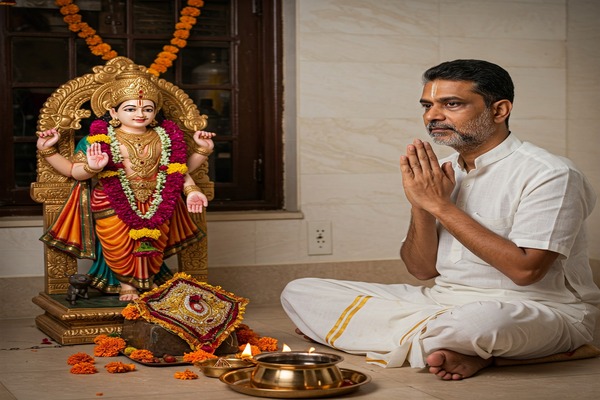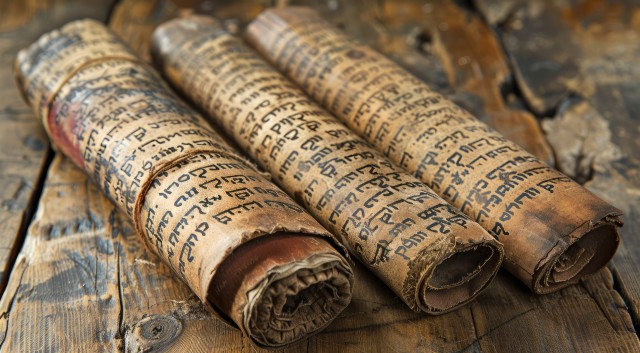
Fasting During Puja: Strengthening Your Spiritual Connection
Science and Spiritual practices have been intertwined since their unexplainable era. To many, certain spiritual practices are useless, while in actuality, they pose immense significance in terms of science and faith. One such age-old spiritual tradition— Fasting during puja.
When it comes to Fasting and Prayer, people often consider it as a drudgery. But truth be told, it is the most rewarding and simplest act of transforming our body into a powerhouse. Fasting during puja is a noble cause. It is the oldest living faith of the world, in every religion.
So, why do Hindus fast during Puja? Let’s find out the spiritual science of fasting.
The Cultural Significance of Fasting During Puja / Hindu Festivals
Fasting during Hindu festivals isn’t just a matter of tradition—it’s a sacred act filled with meaning. Festivals like Navratri, Maha Shivaratri, Karva Chauth, and Ekadashi emphasize fasting as a form of devotion and discipline. But why is fasting so integral to these celebrations?
There’s an old saying— God Help those Help Themselves! According to ancient scriptures, fasting is a form of Tapasya — having control over own senses. And when you have complete control over your senses, you can unfold the unseen (possibilities/opportunities). Thus, fasting is considered a holy practice to create a blissful bond between a human soul and the Godly Spirit.
In Hinduism, fasting, or vrat, symbolizes surrender to the divine. It is believed that by abstaining from indulgences that lure you, one can create space to invite positive energies and divine blessings into their life.
During Navratri, devotees fast to honor the nine forms of Goddess Durga. The practice of fasting during these nine days signifies inner purification and devotion, allowing individuals to cleanse their minds and focus solely on the goddess's divine energy.
Similarly, Karva Chauth, celebrated by married women, is not just about fasting for the longevity of one’s spouse. It’s a gesture of love, faith, and patience that also nurtures inner strength and willpower. The idea is simple but profound.
These rituals carry stories, myths, and morals that strengthen the cultural fabric of Hinduism, making fasting not just a personal experience but a communal one. Families come together, pray, and observe rituals, creating a shared spiritual atmosphere.
Spiritual Benefits of Fasting During Puja Rituals
Imagine a calm mind, a peaceful heart, and a body aligned with divine vibrations. That’s what fasting during puja rituals aims to achieve. It’s not about deprivation—it’s about preparation.
When you fast before a puja, you consciously disconnect from distractions— and what's the biggest distraction than food on Earth!
The focus you abide through this practice allows your prayers to feel more meaningful and your connection to the divine strong (the faith). Fasting also symbolizes humility and respect. By willingly giving up physical pleasures, you show control over yourself and readiness to receive all that's good, fortune, and pure heart blessing.
Take Maha Shivaratri, for example. Devotees fast and stay awake through the night in prayer and meditation to honor Lord Shiva. This practice is said to enhance self-control, which is considered a vital step in spiritual growth. Similarly, fasting on Ekadashi, the 11th day of the lunar cycle, is believed to cleanse not only the body but also past karmas, helping devotees attain a higher state of consciousness. (if you think other way, when you deprive your body of food, in a way you punish yourself, doing prayaschit of any unknowingly done wrongful doing)
Hence, it can be said Fasting teaches patience and endurance, qualities essential for every aspect of life. It’s a way of tuning into your higher self and quieting the noise of the world. In this state, prayer feels more intimate, more powerful, and more transformative.
The Power of Fasting: A Factual Explanation
Apart from the devotional aspect fasting and prayer can also be noted as a realistic practice of life. Wondering what? Let's explain. We all work hard with a purpose— A purpose to earn daily bread, a purpose to live a quality life; and in this process sometimes we hurt ourselves unknowingly (health issues).
Now, the concept of health consciousness, gym life, and healthy diet has emerged recently, it was not there centuries ago. Tell me, why on earth, 200 years ago when nothing like abdomen fat, PCOD, PCOS, or visceral fat terms existed, anybody would fast without a purpose?
This doesn’t mean people weren’t concerned about their health, they were. And to them, then, fasting during puja or festivals was a way of detoxifying their body along with spirit.
In recent years, researchers have studied fasting through lenses like intermittent fasting and caloric restriction, can uncover numerous health benefits. It's all up to you how and when you do it.
Interestingly, the fasting rituals in Hinduism align with circadian rhythms and seasonal changes, showcasing ancient wisdom rooted in biological science.
Fasting activates autophagy, a process where your body clears out damaged cells and regenerates healthier ones. This cleansing at the cellular level mirrors the spiritual purification that fasting aims to achieve. By detoxifying the body, fasting not only enhances physical well-being but also sharpens mental clarity—a perfect state for prayer and meditation. The process stabilizes blood sugar levels, reduces inflammation, and boosts metabolic health.
Prayer, Fasting, and the Essence of Indian Festivals
The beauty of fasting lies in its simplicity. It doesn’t demand grand gestures or elaborate rituals. You don't need to fast for long long hours— do it as it pleases your soul & will. Fasting during puja, asks only for intention and mindfulness. And in return, it offers clarity, peace, and a sense of oneness with the universe.
Health Tips for Safe Fasting During Puja
- Stay Hydrated: Drink plenty of water, coconut water, or herbal teas throughout the day to prevent dehydration. Avoid caffeinated or sugary drinks.
- Choose Nutrient-Dense Foods: When breaking your fast or during selective fasting, opt for fruits, nuts, and light meals rich in vitamins and minerals to keep your energy levels stable.
- Avoid Overeating Post-Fast: Break your fast with small portions and avoid heavy, greasy, or fried foods, as they can upset your digestive system.
- Listen to Your Body: If you feel dizzy, weak, or unwell, consider modifying your fast by having light, easily digestible foods like yogurt, fruits, or milk.
- Plan Ahead: Prepare your fasting-friendly meals and snacks in advance to avoid last-minute unhealthy choices.
- Practice Moderation: If your fast allows selective eating, avoid overindulgence in high-calorie fasting snacks like fried potatoes or sweets.
- Prioritize Rest: Combine fasting with adequate rest to conserve energy and avoid unnecessary physical strain.
- Consult a Doctor: If you have medical conditions like diabetes, acidity, or low blood pressure, consult a healthcare professional before fasting.
- Use Rock Salt (Sendha Namak): During fasting, replace regular salt with rock salt, as it’s gentler on the digestive system.
- Avoid Overexertion: Limit physical activity and focus on light exercises like meditation or yoga to preserve energy and support spiritual practices.
Fasting and prayer are profound acts of self-love and devotion. They remind us to slow down in a fast-paced world, to listen to the whispers of our soul, and to reconnect with the divine energies around us.
From a psychological perspective, fasting triggers a sense of mindfulness. By consciously deciding when and what to eat, you shift your focus inward and break free from habits driven by external stimuli.
Embrace the essence of fasting and prayer, where your thoughts can show you light in the dark and your connection to the divine deepens. So, the next time you light a lamp and close your eyes in prayer, remember: you’re not just fasting for the divine—you’re fasting to discover the divine within. Pause, reflect, and thrive with the blessing of Almighty!





